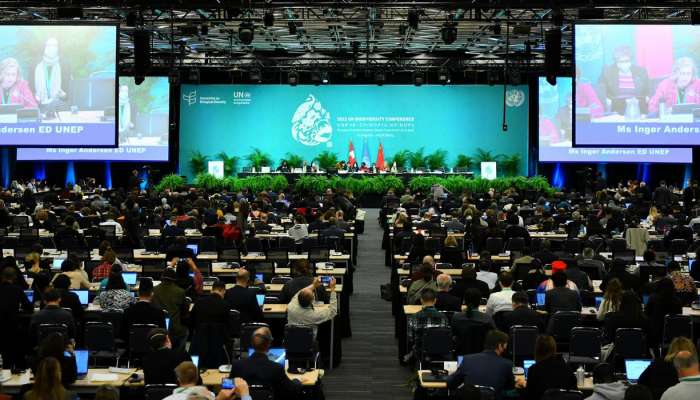
Montreal: Negotiators at a UN biodiversity conference on Monday reached an agreement hailed as a landmark global effort to protect the world's lands and oceans.
The most significant part of the deal is the commitment to protect 30% of land and water considered important for biodiversity before the end of the decade. Currently, just 17% of terrestrial and 10% of marine areas are protected.
The agreement comes a day before the United Nations Biodiversity Conference, or COP15, is set to end in Montreal, Canada.
The passing of the agreement was announced by Chinese Minister of Ecology and Environment Huang Runqiu, who is leading the meeting.
The announcement came shortly after a representative of the delegation from the Democratic Republic of Congo objected to the text, causing some African nations to protest at the manner in which the outcome was proclaimed.
What else does the deal contain?
The agreement envisages putting $200 billion (€188 billion) toward supporting biodiversity by 2030, with another $500 billion to be possibly raised by phasing out or reforming subsidies, such as those for food or fuel.
The deal also calls for giving low-income countries far more than is currently provided for their efforts to protect nature. This amount is to reach at least $20 billion annually by 2025, increasing to $30 billion by 2030.
In 2019, a UN report warned that a million plant and animal species face extinction within decades. The main drivers of that potential destruction are seen by experts as being climate change, along with habitat loss, pollution and development.